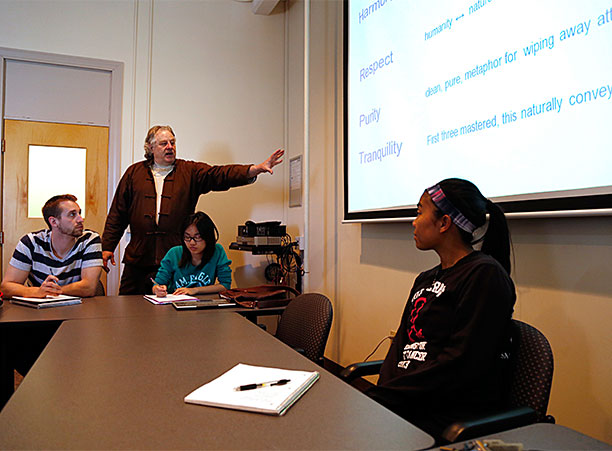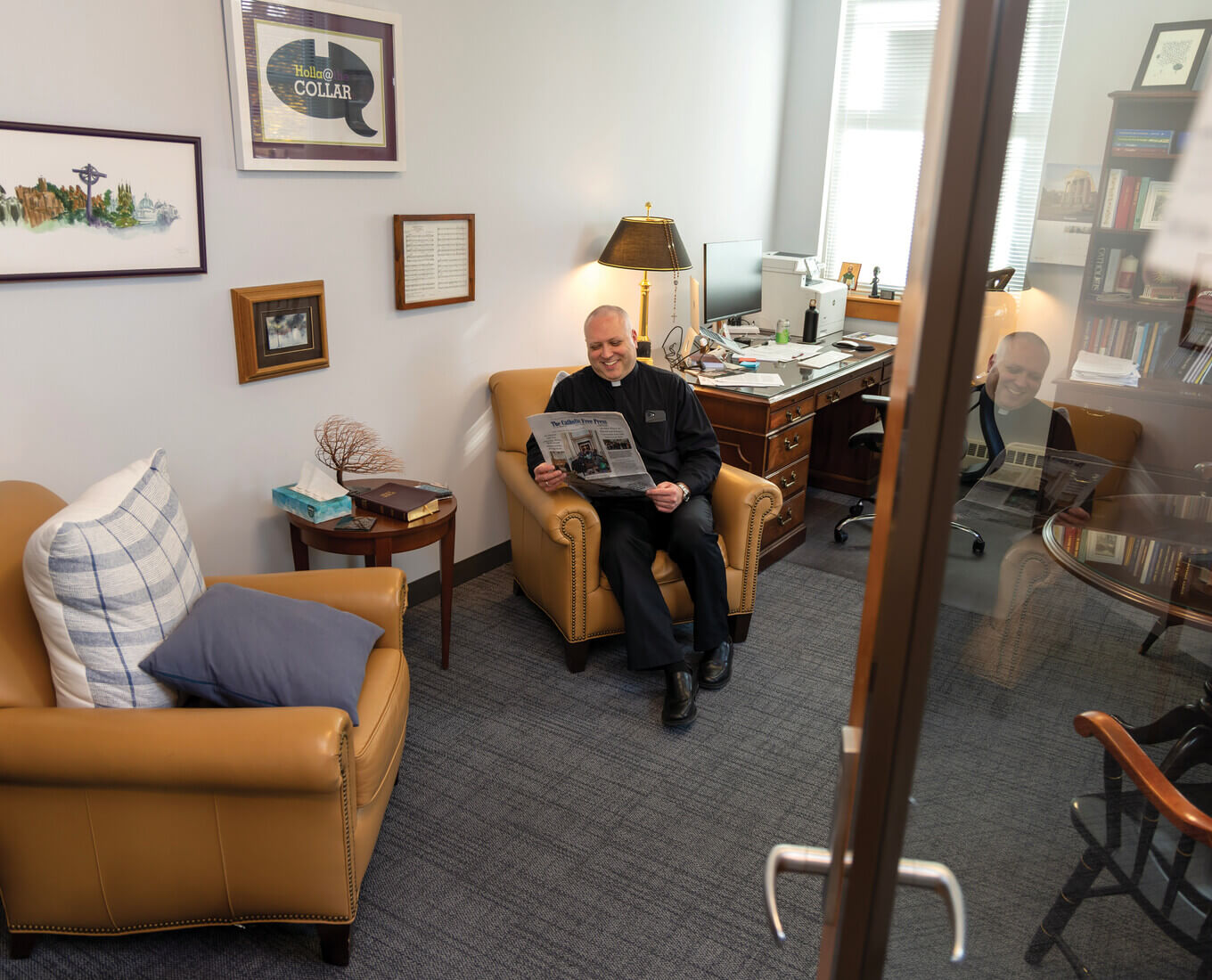 Todd Lewis, professor of religious studies at the College of Holy Cross and a leading scholar in Buddhism, Hinduism, and East Asian religions, recently spoke to multiple news outlets - including CNN, WBZ Radio and Yahoo! News Canada - about the tragic earthquake in Nepal.
Todd Lewis, professor of religious studies at the College of Holy Cross and a leading scholar in Buddhism, Hinduism, and East Asian religions, recently spoke to multiple news outlets - including CNN, WBZ Radio and Yahoo! News Canada - about the tragic earthquake in Nepal.
In a recent Worcester Telegram & Gazette article, Lewis shared his connection with Nepal, "I have lived in the old city of Kathmandu and have lots of friends and lots of connections there." He was in Nepal with his daughter just seven weeks ago on a research trip.
Lewis has been visiting Nepal since 1978 and is working on research documenting Buddhist and Hindu temples, he told the Telegram.
"I have been doing this, in part, because I saw this was inevitable," he said.
Places he has visited are now, in some cases, unrecognizable because of the destruction. He blames it on construction that was not up to earthquake-proof standards. "Geologically they have been predicting something like this for a long time," he said.
With people trying to make sense of this tragedy, Lewis tells CNN, “Buddhist and Hindu texts make it clear that there are all kinds of causal contingencies that just happen."
In one famous Buddhist book, "The Questions of King Milinda," the Buddha teaches that the majority of things that happen to people, good or bad, are not related to karma at all. To put it very simply: stuff happens. The morals and meaning of our lives depend on how we deal with that stuff, reports CNN.
In a Yahoo! News Canada report, Lewis sheds light on the importance of prayer flags. “The parts of Buddhism that everyone knows about are meditation and karma, and trying to reach nirvana… through good karma. What is less known are the Buddhist words that were taught by [Buddha] to make the world safer healthier and more auspicious."
Lewis says Buddha gave his disciples certain words and chants that would bring blessings to the people who chanted them. People would initially speak these words, or mantras, to spread those blessings. 500 years after Buddha, his disciples had the idea to write the words on paper or cloth, which are the prayer flags people see today.
This “Holy Cross in the News” item by Jacqueline Smith ’15.
Media Turn to Religious Studies Prof. to Make Sense of Tragedy in Nepal
CNN | WBZ Radio | Yahoo News! Canada | Telegram & Gazette
Read Time
2 Minutes

